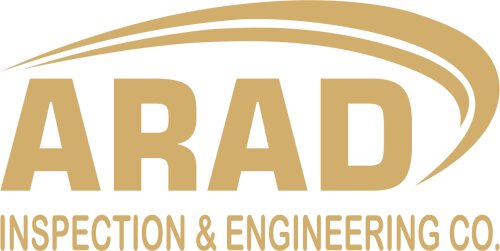Best Water Law Lawyers in Iran
Share your needs with us, get contacted by law firms.
Free. Takes 2 min.
Or refine your search by selecting a city:
List of the best lawyers in Iran
About Water Law in Iran
Water Law in Iran refers to the body of legal rules, regulations, and principles that govern the ownership, allocation, management, and protection of water resources throughout the country. As a semi-arid nation facing increasing water scarcity, Iran’s legal framework plays a crucial role in distributing water among agricultural, industrial, and domestic users. Water Law in Iran is shaped by a mix of Islamic principles, national statutes, regulatory guidance, and international agreements, seeking to balance competing demands and protect public interests.
Why You May Need a Lawyer
Legal issues surrounding water resources in Iran can be complex, often involving overlapping interests among private individuals, government agencies, and businesses. You may require specialized legal assistance in situations such as:
- Securing water usage rights for agricultural or industrial purposes
- Resolving disputes about water ownership or boundaries of wells and water channels (qanats)
- Challenging government decisions regarding water allocation or restriction
- Seeking compensation for damages from water pollution or diversion
- Navigating regulations on digging wells or building irrigation systems
- Compliance with environmental protection laws affecting water use
- Entering or negotiating contracts involving water supply projects
- Representing local communities or organizations in water allocation cases
A lawyer with experience in Water Law can help you understand your rights, prepare and review legal documents, and represent you before governmental bodies or courts if necessary.
Local Laws Overview
The main legal instruments governing water use in Iran include the Civil Code, the Water Nationalization Law (1968), the Law on Fair Distribution of Water (1982), Environmental Protection Law, and related regulations enacted by the Ministry of Energy. Here are key aspects of these laws:
- Ownership: Under Iranian law, most water resources, including surface and underground water, belong to the public and are managed by the government, primarily through the Ministry of Energy.
- Licensing and Permits: Any extraction or usage of water for major agricultural, industrial, or urban needs requires obtaining a permit from the relevant authorities. Unauthorized use can result in penalties or loss of access.
- Water Rights: Traditional and historical rights, like those related to qanats, are recognized but subject to regulation and may face limitations based on broader public interest.
- Dispute Resolution: Water disputes are typically handled by special governmental commissions, courts, or tribunals depending on the nature and scope of the conflict.
- Environmental Regulations: Laws restrict pollution and over-extraction. Activities that harm water quality or ecosystem function are generally prohibited and punishable by law.
- Cross-Border Issues: If water resources cross national boundaries, special bilateral or multilateral agreements apply, and international law may be involved.
Frequently Asked Questions
What is the main law governing water rights in Iran?
The Water Nationalization Law (1968) and the Law on Fair Distribution of Water (1982) are key statutes regulating water rights, supplemented by the Civil Code and sector-specific regulations.
Can individuals own water resources in Iran?
No. Water resources are considered public property managed by the government, but individuals and entities can obtain rights to use water under conditions specified by law.
How can I get permission to dig a well on my property?
You must apply for a license from the local office of the Ministry of Energy, providing technical details and justifying the intended use of the well. Unauthorized wells are subject to penalties and closures.
How are water usage disputes resolved?
Disputes are typically resolved in administrative tribunals or civil courts, with technical input from relevant government agencies. Customary dispute resolution methods may also apply in rural areas.
What are qanats and how are they regulated?
Qanats are traditional underground water channels. Their use is subject to specific regulations, and historic rights are generally protected, but their continued operation must not conflict with public interest or environmental protection standards.
Can I transfer my water rights to someone else?
Transfers may be allowed under certain conditions but require formal approval by the authorities to ensure the transfer does not negatively impact the environment or the rights of others.
What obligations do water users have regarding conservation?
Water users must use water efficiently and avoid wastage or pollution, as required by environmental and water use laws. Authorities may enforce conservation measures during drought or shortages.
What penalties exist for illegal extraction or pollution of water?
Penalties can include fines, confiscation of equipment, cancellation of permits, and even criminal charges in severe cases.
What role do local communities have in water management?
Local communities and cooperative organizations may participate in managing community water resources under supervision from government bodies, particularly in rural areas.
How can I challenge a government decision about water allocation?
You can file an administrative complaint or bring the matter before the appropriate tribunal or court, often with the help of a qualified Water Law lawyer.
Additional Resources
If you need further information or assistance, consider the following resources:
- Ministry of Energy: The main authority for water resource management and licensing in Iran
- Iranian Department of Environment: Handles matters related to water pollution and ecosystem protection
- Local Water Boards: Regional agencies responsible for administering water permits and resolving local disputes
- Bar Associations: Professional organizations that can help you locate a specialist lawyer in Water Law
- Academic Institutions: Many universities and legal faculties in Iran offer publications and seminars on Water Law topics
Next Steps
If you believe you need legal help in matters involving Water Law in Iran, follow these steps:
- Gather all relevant documents and information about your situation, including permits, correspondence, and maps
- Identify whether your issue is administrative, civil, or criminal in nature
- Contact the relevant authority, such as the Ministry of Energy or local water board, for guidance
- Seek consultation with a lawyer experienced in Water Law to assess your rights, obligations, and options
- Prepare for meetings by listing your questions and objectives clearly
- If necessary, pursue formal legal actions with the support of your lawyer, ensuring all procedures and deadlines are met
Timely action and expert advice are essential for protecting your interests and complying with Iran’s Water Law framework.
Lawzana helps you find the best lawyers and law firms in Iran through a curated and pre-screened list of qualified legal professionals. Our platform offers rankings and detailed profiles of attorneys and law firms, allowing you to compare based on practice areas, including Water Law, experience, and client feedback.
Each profile includes a description of the firm's areas of practice, client reviews, team members and partners, year of establishment, spoken languages, office locations, contact information, social media presence, and any published articles or resources. Most firms on our platform speak English and are experienced in both local and international legal matters.
Get a quote from top-rated law firms in Iran — quickly, securely, and without unnecessary hassle.
Disclaimer:
The information provided on this page is for general informational purposes only and does not constitute legal advice. While we strive to ensure the accuracy and relevance of the content, legal information may change over time, and interpretations of the law can vary. You should always consult with a qualified legal professional for advice specific to your situation.
We disclaim all liability for actions taken or not taken based on the content of this page. If you believe any information is incorrect or outdated, please contact us, and we will review and update it where appropriate.
Browse water law law firms by city in Iran
Refine your search by selecting a city.















